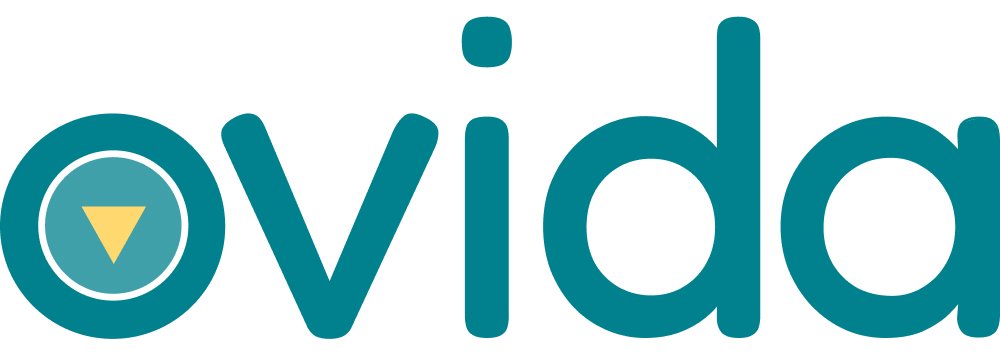The link between coaching and sales interactions
Effective communication and listening abilities aid in comprehending customers, fostering trust, boosting persuasive influence, and ultimately, sealing the deal.
It is now well established that in organisational coaching, one of the most important factors that determine coaching success is the strength and clarity of the relationship between coach and client, also referred to as the working alliance. A number of researchers have investigated this phenomenon. For McKenna and Davis (2009) the “active ingredients” of coaching that determines coaching success is the coach–coachee relationship. A study by De Haan et al (2016) also found that the strength of the coach–client working alliance had a positive effect on coaching outcomes. In a meta-analysis on the association between working alliance and coaching outcomes, Graßmann and colleagues (2020) found that working alliance and coaching outcomes were positively related. Clearly in coaching it is all about the relationship, so let's look at the specific skills and techniques that a coach needs to build a strong relationship.
A number of studies investigated specific techniques that coaches can employ to build a strong relationship and thereby increasing the chance of coaching success. Consistent themes include questioning, active listening and rapport building. In the study by Bachkirova et al. (2015), the items “Coach asks questions helping the client to elaborate” and “Coach asks questions that appear to open new possibilities for the client,” were rated highest by participants regarding perceived importance. Geißler (2009) found asking questions to be the most frequently observed communicative behaviour linked to coaching success. In my own research in career transition coaching I found questioning to be one of the most important coaching techniques to help leaders change and succeed (Terblanche, 2020).
So what is the link to sales? To see if there are similarities between coaching skills and sales skills I consulted the academic literature on sales skills and found the following revealing studies. Amor (2019) identified a number of skills needed by successful salespeople: communication and listening skills, knowledge possession, sales presentation skills, flexibility and adaptability, empathy, cooperative skills, honest and ethical behaviour, and time management skills. What is interesting is that communication and listening skills were rated higher than all the rest. They state that communication and listening skills help to better understand customers, build trust relationships, enhance persuasion power, and increase closing the sale. Their findings are supported by Spiro and Weitz (1990) who found that with effective interpersonal listening ability, the sales representative acquires perceptions required for adaptive selling behaviours, which is favourable for sales performance.
In another study by Manna and Smith (2004), they found that in the insurance and financial sector, the single most important factor that influences sales success is emotional intelligence or emotional awareness skills. Drollinger and Corner (2013) found that active empathetic listening (AEL) was positively related to salespersons' communication skills, relationship quality and trust. Their findings are supported by Humphreys and Williams (1996) who showed that a key component to building mutually beneficial relationships in business to business sales is the ability of salespeople to communicate well with their customers.
More proof is provided by studies using purchasing professionals as participants. Moore et al (1986) showed that effective listening is the most important skill a salesperson can possess and that poor listening by salespersons is significantly correlated with poor working relationships. They define active listening as involving both verbal and nonverbal elements and that the listener assures the speaker they hear them via head nods and eye contact. The listener also seeks to understand the speaker by asking questions or repeating what was said for the sake of clarity. Probing questions are also helpful in this regard. They conclude that salespeople need to be trained in active listening and that role playing may be an excellent way to do this training. Clearly listening in sales is as important as in coaching. And what about asking questions?
A study by Schuster and Danes dating back to 1986 revealed that successful sales encounters involve “requests for opinions and fewer statements by the salesperson”. They conclude that salespeople control the sales process by the way they ask questions and that asking questions plays a significant role in sales success.
Taylor et al (2023) found that what consistently distinguished elite surgeons, chess players, pianists, professional athletes, and experts in numerous other domains was the habit of engaging in “those activities that have been found most effective in improving performance”. These are so-called “deliberate and purposeful practice activities”. In other words sales skills such as listening and question can and must be actively practised and, importantly, reflected upon. Without reflection, there is no learning.
Arnt and colleagues (2018) investigated ways to help students of sales improve their sales skills. They found that the most direct way to identify customer needs and to adapt to different customer styles is to ask questions. They conclude that active listening, which includes questioning skills, has been linked to a variety of performance benefits, such as customer intention to engage in future interactions with salespeople, satisfaction with the salesperson, trust in the salesperson and relationship quality. By asking customers questions, salespeople will learn customer needs and demonstrate empathy towards the customer. An interesting and practical conclusion from these researchers is that questioning can actually help inexperienced sales people perform well until they have acquired the necessary knowledge.
It seems there is ample evidence that coaches skills transferable to the sales environment. In the articles to follow I will zoom in on specific coaching skills and how research has shown these skills to be useful for salespeople.
References
Amor, N. E. H. B. (2019). What skills make a salesperson effective? An exploratory comparative study among car sales professionals. International Business Research, 12(11), 76-93.
Bachkirova, T., & Smith, C. L. (2015). From competencies to capabilities in the assessment and accreditation of coaches. International Journal of Evidence Based Coaching and Mentoring, 13(2), 123-140. (1-star)
de Haan, E., Grant, A. M., Burger, Y., & Eriksson, P. O. (2016). A large-scale study of executive and workplace coaching: The relative contributions of relationship, personality match, and self-efficacy. Consulting Psychology Journal: Practice and Research, 68(3), 189.
Drollinger, T., & B. Comer, L. (2013). Salesperson's listening ability as an antecedent to relationship selling. Journal of Business & Industrial Marketing, 28(1), 50-59. (2-star, A-rated)
Graßmann, C., Diller, S. J., & Jonas, E. (2021). Which strategies do coaches use with challenging clients? An explorative analysis of challenges, strategies and the role of supervision. Coaching| Theorie & Praxis, 1-10.
Humphreys, M. A., & Williams, M. R. (1996). Exploring the relative effects of salesperson interpersonal process attributes and technical product attributes on customer satisfaction. Journal of Personal Selling & Sales Management, 16(3), 47-57. (2-star, A-rated)
Manna, D. R., & Smith, A. D. (2004). Exploring the need for emotional intelligence and awareness among sales representatives. Marketing Intelligence & Planning, 22(1), 66-83. (1-star, C-rated)
Moore, J.R., Eckrich, D.S. and Carlson, L.T. (1986), "A Hierarchy of Industrial
Selling Competencies", Journal of Marketing Education, (Spring), pp.79-9 (2-star, B-rated)
Schuster, C. P., & Danes, J. E. (1986). Asking questions: some characteristics of successful sales encounters. Journal of Personal Selling & Sales Management, 6(1), 17-27. (2-star, A-rated)
Spiro, R. L., & Weitz, B. A. (1990). Adaptive selling: Conceptualization, measurement, and nomological validity. Journal of Marketing Research, 27(1), 61-69. (5-star, A+ rated)
Taylor, A., Jossberger, H., & Gruber, H. (2023). Purposeful practice as the key to superior sales performance: An exploratory analysis. Journal of Marketing Theory and Practice, 1-17. (2-star, B-rated)
Terblanche, N. (2021). Coaching techniques for sustained individual change during career transitions. Human Resource Development Quarterly, 32(1), 11-33. (2-star, B-rated)
*Journal ratings are based on Chartered Association of Business Schools (1 to 5 star) and Australian Business Deans Council (A+ to C ratings)


